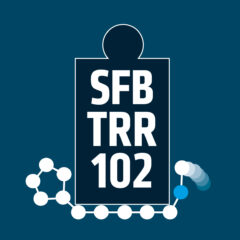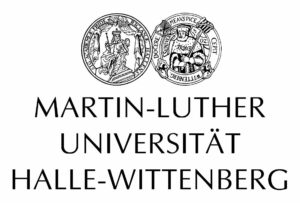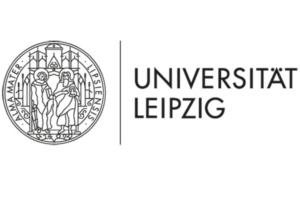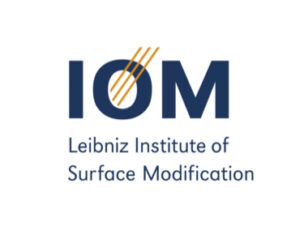Minisymposia
10. Minisymposium (Friday, 11.02.2022, 1.15-4.15 pm, Online)
The 10th Minisymposium was organized by Prof. Bernd Abel (UL) and Dr. Jonas Warneke (UL).
Due to the corona situation it was held as a Zoom webinar.
9. Minisymposium (Friday, 05.02.2021, 1.30-4.00 pm, Online)
The 9th Minisymposium was organized by Prof. Daniel Sebastiani (MLU).
Due to the corona situation it was held as a Zoom webinar.
8. Minisymposium (Friday, 17.07.2020, 2.30 pm, via Zoom)
The 8th Minisymposium was organized by Dr. Martin Tress (Leipzig University).
Due to the corona situation it was held as a webinar.
7. Minisymposium (Friday, 13.12.2019, 12.00 pm, in Leipzig)
Event location:
Universität Leipzig
Carl-Ludwig-Institute for Physiology
Liebigstraße 27
6. Minisymposium (Thursday, 06.06.2019, 2.00 pm, in Halle)
Event location:
Martin Luther Universität Halle-Wittenberg
Heide Campus
Theodor-Lieser-Straße 9
Gustav Mie Lecture Hall(1.04)
5. Minisymposium (Friday, 08.06.2018, 12.00 pm, in Leipzig)
Event location:
Universität Leipzig
Carl-Ludwig-Institute for Physiology
Liebigstraße 27
Smal Lecture Hall(Room 103)
4. Minisymposium (Friday, 16.06.2017, 1.00 pm, in Halle)
Event location:
Martin Luther Universität Halle-Wittenberg
Löwengebäude
Hörsaal XIV a/b
Universitätsplatz 11
06108 Halle(Saale)
3. Minisymposium (Friday, 02.12.2016, 1.15 pm, in Leipzig)
Event location:
Universität Leipzig
Theoretischer Hörsaal
Linnéstraße 5
04103 Leipzig
2. Minisymposium (Thursday, 19.05.2016, 2.00 pm, in Halle)
Event location:
Martin Luther University Halle-Wittenberg
Von-Seckendorf-Platz 1
06120 Halle(Saale)
1. Minisymposium (Thursday, 19.11.2015, 2.00 pm, in Leipzig)
Event location:
Universität Leipzig
Carl-Ludwig-Institute for Physiology
Liebigstraße 27
Smal Lecture Hall(Room 103)
Colloquia
2015
9.07.15 Prof. Dr. Kookheon Char
@ Gustav-Mie auditorium of the Institute of Physics, Theodor-Lieser-Str.9, 5.00 pm
The National Creative Research Initiative Center for
Intelligent Hybrids School of Chemical & Biological Engineering, Seoul National University, Seoul, South Korea
Abstract:
Controlling the response of polymeric materials against surrounding environment holds promise to engineer novel nanostructured materials. Particularly, constraints imposed by nanometer-scale confinement lead to significant changes in the bulk equilibrium behavior of chained molecules, breaking the symmetry in the assembled structure….
11.06.2015 in Leipzig Prof. Dr. Bernd Stühn
@ auditorium of the Institute of Theoretical Physics Linnéstr. 5, 5.00 pm
Experimentelle Physik kondensierter Materie, Physik weicher Materie, Technische Universität Darmstadt
“Multiscale dynamics in a complex liquid”
Abstract:
The three component system of water, oil and surfactant forms a nanostructured liquid called a microemulsion. In a range of compositions it consists of spherical droplets of one phase, covered by a surfactant layer and embedded in the other phase. …
21.05.15 in Halle Prof. Dr. Christian Holm
@ Gustav-Mie auditorium of the Institute of Physics, Theodor-Lieser-Str.9, 4.00 pm
Institute for Computational Physics
Universität Stuttgart
“Investigating Magnetic Soft Matter”
Abstract:
Ferrogels are hydrogels that additionally contain magnetic single-domain particles and whose properties can be controlled by using external magnetic fields. We will present recent results on the microstructure, the magnetic behavior, and the mechanical and viscoelastic properties of 2D and 3D magnetic gels on the basis of 2 microscopic particle models. In the first model the nano-magnets are part of the chain monomers, whereas in the second model the magnetic particles are restricted to the network nodes….
07.05.2015 in Leipzig Prof. Dr. Sanjay Kumar
@ auditorium of the Institute of Theoretical Physics Linnéstr. 5, 5.00 pm
Department of Physics, Banaras Hindu University,Varanasi 221 005, India
Abstract:
Separation of a double stranded DNA (dsDNA) is prerequisite for the essential cellular processes, such as, replication and transcription. It is now well known that DNA is stabilized by inter- and intra- molecular interactions. Single Molecular Force Spectroscopy (SMFS) techniques, e.g. optical tweezers, magnetic tweezers and atomic force microscopy, have emerged as powerful tools to investigate these interactions. These experiments have provided various insights and understanding of biological processes at the molecular level….
30.04.2015 in Leipzig Prof. Dr. Michael Vogel
@ auditorium of the Institute of Theoretical Physics Linnéstr. 5, 5.00 pm
Institut für Festkörperphysik, Technische Universität Darmstadt
Abstract:
Water in confinements of nanoscopic size and in mixtures with various molecules, ranging from alcohols to proteins, is of great relevance in many fields, from biology to geology. For these systems, the water properties can be strongly affected by finite-size effects and specific interface interactions. To gain fundamental insights, we combine nuclear magnetic resonance (NMR) and broadband dielectric spectroscopy (BDS) with molecular dynamics (MD) simulations…
2014
Special Event
19.12.2014 in Halle
@ Hörsaal 1.23, Von-Seckendorff-Platz 1, 06120 Halle
Prof. Kazuyuki Akasaka, Humbold Fellow
Institute of Advanced Technology, Kinki University, Japan
“ Pressure and the hidden dynamism of proteins “
Abstract:
Prof. Akasaka is one of the leading scientists of protein NMR spectroscopy in Japan. He is interested in the structure and conformational fluctuations of biopolymers. He pioneered high pressure NMR to study protein folding and protein dynamics. In his talk he will discuss spectroscopic applications under high pressure to explore the energy landscape of proteins including examples from the fields of amyloid and prion proteins, deep-sea biology and food science.
18.12.2014 in Halle
Prof. Günter Reiter
@ Gustav-Mie auditorium of the Institute of Physics, Theodor-Lieser-Str.9
Physikalisches Institut, Fakultät für Mathematik und Physik
Albert-Ludwigs-Universität Freiburg
Abstract:
Crystallizable polymers often form multiple stacks of uniquely oriented lamellae, which have good registry despite being separated by amorphous fold surfaces. These correlations require multiple synchronized, yet unidentified, nucleation events. Here, we demonstrate that in thin films of isotactic polystyrene, the probability of generating correlated lamellae is controlled by the branched morphology of a single primary lamella…
11.12.2014 in Leipzig
Prof. Walter Richtering
@ auditorium of the Institute of Theoretical Physics Linnéstr. 5
Institut für Physikalische Chemie ,
RWTH Aachen University
Abstract:
Multi-sensitive, “smart” microgels display a variety of properties that distinguish them from rigid colloidal particles. The swelling of the soft particles can be controlled via the chemical composition as well as the morphology of the particle. Due to the chemical structure of the microgels, their size can respond to variations, e.g., of temperature, pH, pressure or solvent composition. The porosity of the microgels further allows for the uptake and release of guest species, which can be controlled by external stimuli…
06.11.2014 in Leipzig
Prof. Christine Papadakis
@ auditorium of the Institute of Theoretical Physics Linnéstr. 5
TU München
“Kinetics of collapse and aggregation in thermoresponsive micellar block copolymer solutions“
Abstract:
Thermoresponsive, polymeric hydrogels respond in a controlled and reversible way with a volume change to a small change of temperature across the cloud point. These switchable and nanostructured materials are of great interest for controlled molecular ultrafiltration. A widely used thermoresponsive polymer is poly(N-isopropylacrylamide) (PNIPAM) which exhibits a cloud point at 32 °C. We investigate self-assembled, physically crosslinked thermoresponsive hydrogels formed by amphiphilic, symmetric triblock copolymers having short, fully deuterated polystyrene (P(S-d8)) end blocks and a large (PNIPAM) middle block.
23.10.2014 in Halle
Prof. Dieter Willbold
Forschungszentrum Jülich GmbH, Institute of Complex Systems, ICS-6 Strukturbiochemie, 52425 Jülich
“Aβ-oligomer targeted therapy and diagnosis of Alzheimer’s disease.”
Abstract:
Alzheimer’s disease (AD) is a progressive neurodegenerative disorder. Several lines of evidence suggest a central role of amyloid-β-peptide (Aβ) in the pathogenesis of AD. More than Aβ fibrils, small soluble and prion-like Aβ oligomers are suspected to be the major toxic species responsible for disease development and progression. Therefore, these oligomers should be our major target for therapy and used as the most direct biomarker for diagnosis and therapy monitoring…
10.07.2014 in Halle
Prof. Dr. Tanja Schilling
@ Gustav-Mie auditorium of the Institute of Physics, Theodor-Lieser-Str.9
Theory of Soft Condensed Matter, Universite du Luxembourg
“Crystal Nucleation in Alkanes“
Abstract:
Although the crystallization process in alkanes has been studied intensively for decades, molecular details of crystal nucleation events have not been accessible until very recently. We present a computer simulation study of crystallization from sheared as well as quiescent undercooled melts of C20 and C150 and analyse the crystal nucleation process…
05.06.2014 in Leipzig
Dr. Daniele Cangialosi
@ auditorium of the Institute of Theoretical Physics Linnéstr. 5
Centro de Física de Materiales (CSIC-UPV/EHU), Paseo Manuel de Lardizabal 5, 20018 San Sebastián, Spain
“Dynamics and thermodynamics of glasses in bulk and under confinement“
Abstract:
Glass-forming systems have been the subject of intense research in the last decades. Within this context the following topics have been recently debated: i) the glassy dynamics in nanoscale confinement, with special attention to thin polymer films; and ii) the fate dynamics and thermodynamics below the laboratory glass transition temperature (Tg), namely that obtained at cooling rates of several kelvin per minute. In this seminar, first of all I critically discuss the recent advancements in the understanding of glassy dynamics in confinement…
22.05.2014 in Leipzig
Prof. Dr. Ulrich S. Schubert
@ little auditorium, Linnéstr. 5
Laboratory of Organic and Macromolecular Chemistry (IOMC) and Jena Center for Soft Matter (JCSM), Friedrich Schiller University Jena, Jena
“Nanochemistry: Applications in surface functionalization, self-assembly and nanofabrication“
Abstract:
The availability of new materials, i.e., graphene, carbon nanotubes or inorganic plasmonic nanoparticles, opened up appealing possibilities to access novel material properties. While the resulting properties offer tremendous potential for applications, in many cases the handling and implementation of these materials into devices and functional materials sometimes imposes challenges to allow for the utilization of these materials. Frequently, chemical derivatization, surface coatings as well as the availability of novel synthesis strategies can help to solve these problems…
10.04.2014 in Halle
Prof. Dr. Mischa Bonn
@ Gustav-Mie auditorium of the Institute of Physics, Theodor-Lieser-Str.9
Molecular Spectroscopy Group,
Max Planck Institute for Polymer Research, Mainz
“Ultrafast Carrier Dynamics in Graphene and Graphene Nanostructures”
Abstract:
Graphene is an attractive candidate for many optoelectronic applications because of its vanishing bandgap and high carrier mobility. An essential process for such applications is the dissipation of the energy of photoexcited charge carriers in the material. Two competing energy relaxation mechanisms for optically excited carriers exist: They can (i) thermalize with intrinsic carriers near the Fermi level, heating them to higher energy states through the process of ‘hot carrier multiplication’; or , …
30.01.2014 in Leipzig
Prof. Dr. Jörg Baschnagel
@ auditorium of the Institute of Theoretical Physics Linnéstr. 5
Institut Charles Sadron
23 rue du Loess – BP 84047,67034 Strasbourg Cedex 2, France
“Corrections to Chain Ideality in Polymer Melts: Bulk, Thin Films and Pores”
Abstract:
An important concept in polymer physics is the Flory ideality hypothesis. This hypothesis states that polymer chains in a melt have random-walk-like conformations. However, theoretical [1–4] and numerical results [3,5] suggest that this view is an oversimplification. There are noticeable deviations from chain ideality,…
16.01.2014 in Halle
Prof. Dr. Jürgen Rühe
@ Gustav-Mie auditorium of the Institute of Physics, Theodor-Lieser-Str.9
Laboratory for Chemistry and Physics of Interfaces, Department of Microsystems Engineering (IMTEK), University of Freiburg
“Tailormade Polymer Monolayers and Networks for Microsystems and Engineered Biointerfaces“
Abstract:
All interactions of materials with their respective environments are controlled by the topography and chemical composition of their surfaces. Examples are the adhesion between different objects, wetting of surfaces by contacting liquids and the adsorption of molecules from the surrounding medium. Accordingly it is important to develop chemical tools which allow the attachment of tailor-mode polymer molecules to surfaces of different chemical composition. In the presentation a new strategy will be presented which allows to generate novel, micropatterned polymer coatings with tailor-made properties with high spatial resolution on a variety of different substrates, ranging from typical oxides to polymers and biological materials [1-5]…
09.01.2014 in Halle
Prof. Dr. Dieter Richter
@ Gustav-Mie auditorium of the Institute of Physics, Theodor-Lieser-Str.9
Forschungszentrum Jülich,Institute of Complex Systems (ICS-1)
52425 Jülich, Germany
“Polymer Dynamics in Nano Composites and under Confinement“
Abstract:
After summarizing neutron spin echo (NSE) results on the polymer dynamics in non-interacting nano composites, I will present NSE investigations on polymers interacting attractively with nanoparticles or confining surfaces. Polyethylene-oxide (PEO) was filled with neat SiO2 nanoparticles up to 15 vol%. Investigating a short chain matrix we realised that…
2013
12.12.2013 in Leipzig
Prof. Jeppe C. Dyre
@ auditorium of the Institute of Theoretical Physics Linnéstr. 5
The Department of Science, Systems and Models
Universitetsvej 1, <span class="address_room” style=”margin: 0px; padding: 0px;”>27.1, DK-4000, Roskilde,Denmark
“What controls the relaxation time in glass-forming liquids and polymers? New insights from density scaling and the isomorph theory“
Abstract:
The relaxation time of a supercooled liquid increases dramatically upon lowering temperature or increasing density; the same applies for the alpha relaxation time of polymeric systems. In extreme cases a 1% temperature decrease leads to more than a factor of ten increase of the relaxation time. The relaxation time is typically probed as the inverse dielectric loss-peak frequency, but …
21.11.2013 in Halle
Prof. Ben Schuler
Biochemisches Institut, Universität Zürich,Winterthurerstr. 190,
8057 Zürich, Switzerland
“Probing the polymer properties of unfolded and intrinsically disordered proteins with single-molecule spectroscopy”
Abstract:
Intrinsically disordered proteins (IDPs) lack a well-defined three-dimensional structure, but are involved in a wide range of biological functions. Single-molecule fluorescence spectroscopy can provide intramolecular distance distributions and reconfiguration times under a wide range of conditions, …
18.07.2013 in Halle
Prof. Dr. Stephan Förster
Institut für Physikalische Chemie, Universität Bayreuth
“The perfect mix: making nanoparticles that like polymers.“
Abstract:
Polymer nanocomposites have gathered substantial academic and industrial interest since the first reports in the early 1990s. Observations of large property changes at very low volume fractions of added nanoparticles, and the possibility to integrate nanoparticles with specific properties providing new functions have motivated an increasing number of investigations…
27.06.2013 in Leipzig
Prof. Dr. R. Winter
TU Dortmund
“Fibrillogenesis of the Islet Amyloid Polypeptide – Effects of Membranes, Crowding, and Search for Inhibitors”
Abstract:
Using various physical-chemical tools and perturbation parameters, the effects of temperature, pressure, cosolvents as well as lipid interfaces and confining geometries on the various stages of the aggregation and fibrillation reaction of amyloidogenic peptides have been studied. First we show data on the experimentally derived static structure factor obtained for the protein insulin which has been analyzed with astatistical mechanical model based on the DLVO potential…
13.06.2013 in Halle
Prof. Dr. J.-U. Sommer
Leibniz Institute of Polymer Research Dresden e. V. “Polymer Crystallization: Ordered Structures in Complex Systems”Abstract:The crystallization of long chain molecules requires two ordering processes which take place simultaneously: Transition of each chain from the randomly coiled state into the partially folded and extended state, and the growth of many chains forming a regular crystalline structure. This leads to complex crystallization and nucleation pathways which usually result in non-equilibrium meta-stable states.
06.06.2013 in Leipzig
Prof. Dr. Martin Möller
RWTH Aachen
“From hierarchical selforganisation towards polymer systems with functional and active properties”
Abstract:
Polymer science focuses more than ever on mastering increasingly complex molecular structures and supramolecular assemblies for advanced functionalities such as nanoprogrammed structure formation, molecular recognition, meta- and multistability, adaptive structures, shape memory properties, self-healing properties, molecular motility, molecular energy conversion systems and replication.
The work presented here focuses on the spontaneous formation of functional monolayers…
17.01.2013 in Leipzig
Prof. Dr. Dieter Neher
(University of Potsdam, Institute of Physics and Astronomy)
“Charge Carrier Generation and Transport in Organic Solar Cells”
10.01.2013 in Halle
Prof. Juan Colmenero de Leon
(Centro de Física de Materiales (CSIC, UPV/EHU) and Donostia International Physics Center, San Sebastián, Spain)
“Constrained Chain dynamics in un-entangled polymer blends with dynamic asymmetry. A generalized Langevin equation (GLE) formalism”
2012
22.11.2012 in Leipzig
Hans-Jürgen Butt
01.11.2012 in Halle
Prof. Do Yoon
(Department of Chemical Engineering, Stanford University, Stanford, USA)
“Effects of Comonomers on Lamellar and Noncrystalline Microstructure of Ethylene Copolymers”
18.10.2012 in Halle
Cédric Lorthioir
(CNRS / University of Paris East)
Interfacial dynamics of polymer chains in nanocomposite hydrogels:
An intermediate state towards solid-state nanocomposites
20.09.2012 in Halle
Prof. Klaus Schmidt-Rohr
(Ames, Iowa,USA)
Analysis of Chain Dynamics and Nanostructure in Polymer-based Materials
An analysis of chain dynamics and ordering, as well as the local morphology, will be presented for two nanostructured polymer-based materials, based on NMR and scattering data. Nylon-6 in a nanocomposite with an inorganic glass is constrained to layers of thicknesses comparable to the crystallite dimensions. Selective NMR of the polymer near the organic-inorganic interface shows reduced crystallinity and mobility…
28.06.2012 in Leipzig
Prof. Matthias Ballauff
“Interaction of Proteins with Soft Polymeric Layers“
07.06.2012
Prof. George Floudas
“Discotic liquid crystals in motion”
24.05.2012 in Leipzig
Prof. Jürgen Rabe
“Molecularly defined soft nano-tubes and slit-pores – how to make and how to use them“
10.05.2012
Prof. Ian Manners
“Functional Nanomaterials via Crystallization-Driven “Living Self-Assembly”
26.04.2012
Prof. Peter Schurtenberger
“Concentrated protein solutions, or a physicist’s view of cataract formation”
Joint colloquium of the Institute of Physics and the SFB/TRR 102
19.03.2012 2.00 pm
Prof. Virgil Percec
“Bioinspired Synthesis of Complex Systems”
15.02.2012
Prof. Dr. Frédéric Laquai
MPI for Polymer Research, Mainz (Binder)
“Efficiency-limiting processes in bulk heterojunction organic solar cells”
The colloquium was held at 4.00 pm in Room 1.27, Von-Danckelmann-Platz 4, 06120 Halle (Campus Heide-Süd).






